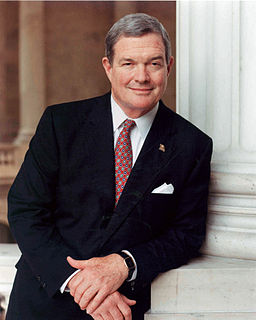A Quote by Chris Christie
No wonder nobody around the world is nervous about America anymore. No wonder we're not intimidating our adversaries and they're running around wild in the world, because they know we're not investing in our defense anymore. We need to make or military strong, not to wage war, but to avoid war and to bring peace and stability in the world.
Related Quotes
I look around the world, I don't see America's influence growing around the world. I see our influence receding, in part because of the failure of Barack Obama to deal with our economic challenges at home; in part because of our withdrawal from our commitment to our military in the way I think it ought to be; in part because of the turmoil with Israel.
However, there is a fundamental difference between the issue related to Japan's history and our negotiations with China. What is it all about? The Japanese issue resulted from World War II and is stipulated in the international instruments on the outcomes of World War II, while our discussions on border issues with our Chinese counterparts have nothing to do with World War II or any other military conflicts. This is the first, or rather, I should say, the second point.
I think war and armed conflict is always the last of all the options you have on the table. I think you try to avoid that at all costs. Sometimes it's unavoidable. That's the lesson of World War II. I think the other lesson of the last 50 or 60 years, however, is that, the stronger the U.S. military, the stronger our defense capabilities, the stronger the chances for peace are.
Unlike President Obama, I would say that I support the long-standing bipartisan post-war belief that American global strength and leadership secures our national-security interests, and it also promotes order and stability in the world. And it gives us immense influence in the world and deters our adversaries and reassures our allies.
Actually, the phrase "national security" is barely used until the 1930s. And there's a reason. By then, the United States was beginning to become global. Before that the United States had been mostly a regional power - Britain was the biggest global power. After the Second World War, national security is everywhere, because we basically owned the world, so our security is threatened everywhere. Not just on our borders, but everywhere - so you have to have a thousand military bases around the world for "defense."
As we watch the world embrace the Olympics in the coming days, let us remember why the modern Olympics came into being: to bring nations closer together, to have the youth of the world compete in sports, rather than fight in war. As long as we believe our own war-driven thoughts, there will always be war, in ourselves, in our families, and in our world. As long as we believe our thoughts, there will always be war.
When you say that after World War I there was a pandemic that killed more people than the war itself, most will say: "Wait, are you kidding? I know World War I, but there was no World War 1.5, was there?" But people were traveling around after the war, and that meant the force of infection was much higher. And the problem is that the rate of travel back then was dramatically less than what we have nowadays.
The twentieth century had dispensed with the formal declaration of war and introduced the fifth column, sabotage, cold war, and war by proxy, but that was only the begining. Summit meetings for disarmament pursued mutual understanding and a balance of power but were also held to learn the strengths and weaknesses of the enemy. The world of the war-or-peace alternative became a world in which war was peace and peace war.
Aristotle said that philosophy begins in wonder. I believe it also ends in wonder. The ultimate way in which we relate to the world as something sacred is by renewing our sense of wonder. That's why I'm so opposed to the kind of miracle-mongering we find in both new-age and old-age religion. We're attracted to pseudomiracles only because we've ceased to wonder at the world, at how amazing it is.
Phonogram was explicitly about our world. It’s a fantasy which is happening around us all, unnoticed except for those who’ve fallen into its world. In a real way, it’s real. Conversely, W+D is much more overt. The appearance of the gods changes the world, and has changed the world going back. There’s the strong implication that certain figures in our world simply didn’t exist in The Wicked And The Divine‘s world, because they were replaced by a god.
The World War I, I'm a child of World War I. And I really know about the children of war. Because both my parents were both badly damaged by the war. My father, physically, and both mentally and emotionally. So, I know exactly what it's like to be brought up in an atmosphere of a continual harping on the war.






























